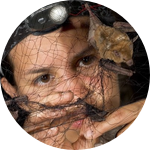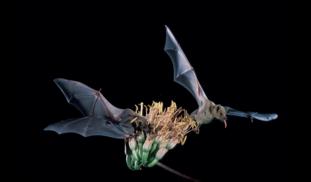Please wait...
About This Project
Thousands of pregnant bats migrate 700 miles every year in search of quality food and roosts. They follow nectar trails and pollinate cacti as the tequila agave.
Migration is controlled by specific genes and is influenced by the environment. This project will aid in the protection of key areas for migration, the conservation of the ecological services provided by these bats, and in turn ensure the survival of tequila.
More Lab Notes From This Project

Browse Other Projects on Experiment
Related Projects
Using eDNA to examine protected California species in streams at Hastings Reserve
Hastings Reserve is home to three streams that provide critical habitat for sensitive native species. Through...
How do polar bears stay healthy on the world's worst diet?
Polar bears survive almost entirely on seal fat. Yet unlike humans who eat high-fat diets, polar bears never...
Uncovering hidden insect diversity associated with a likely undescribed gall-forming midge
Does a likely undescribed species of gall-forming midge (pers. comm. Ray Gagné) on Eriodictyon plants (Yerba...


